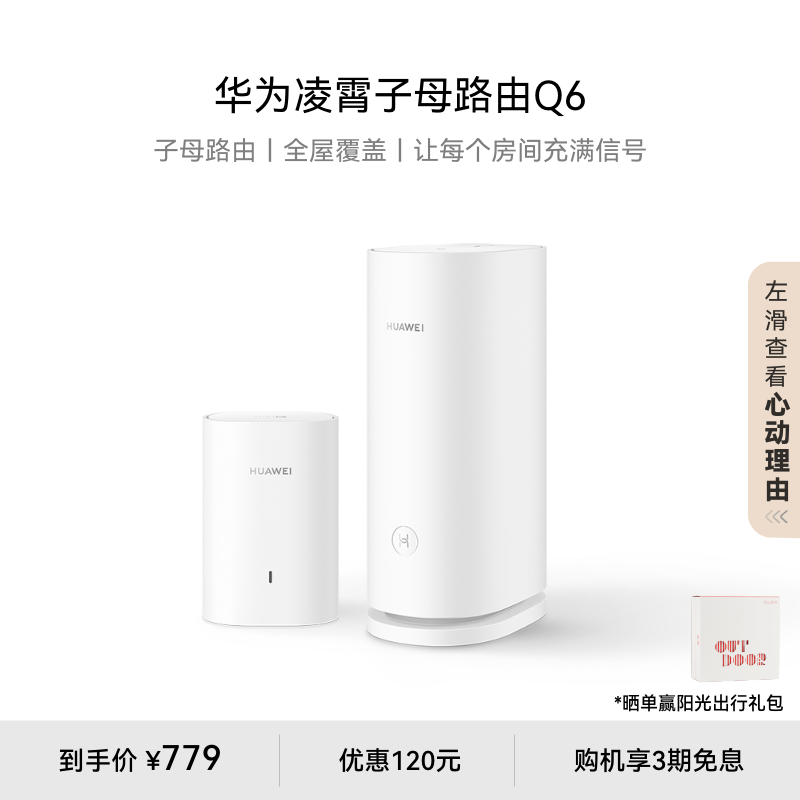"路由器:家庭网络的智能枢纽"
观想沮
2024-10-13 00:00:54
0次
路由器:家庭网络的智能枢纽
在当今的数字化时代,家庭网络已经成为了我们日常生活中不可或缺的一部分。而在这个家庭网络中,路由器则扮演着至关重要的角色,成为了智能的枢纽。本文将深入探讨路由器的定义、重要性及其在家庭网络中的应用。
一、路由器的定义
路由器,又称为网络层设备,是一种连接多个网络或子网的设备。它能够根据网络层地址(如IP地址)进行数据包的转发和路由选择,从而确保数据包能够准确地到达目的地。简而言之,路由器是实现不同网络间连接与数据交换的关键设备。
二、路由器在家庭网络中的重要性
作为家庭网络的智能枢纽,路由器扮演着多重角色。首先,它连接了家庭内部的各种设备,如电脑、手机、电视等,使它们能够相互通信并访问互联网。其次,路由器通过设置防火墙和病毒防护等功能,保障了家庭网络的安全性。此外,路由器还能根据实际需求设置网络连接规则,满足不同设备的网络使用需求。 三、家庭网络中路由器的应用 在家庭网络中,路由器的应用非常广泛。首先,它可以提供无线网络服务,使得手机、电脑等设备可以通过无线网络与互联网相连。其次,通过有线和无线网络接口的混合应用,路由器实现了对不同类型设备的接入支持。此外,部分高级路由器还支持远程管理功能,方便用户随时随地进行设置和管理。最后,通过将多个家庭联网形成一个局域网,路由器还可以实现家庭内部的资源共享和文件传输等功能。 四、Conclusion 综上所述,路由器作为家庭网络的智能枢纽,不仅提供了各种便利的网络服务,还确保了家庭网络的安全性和稳定性。在未来的发展中,随着智能家居的普及和互联网技术的不断进步,路由器的功能和应用将更加丰富和多样化。因此,了解并合理使用路由器将有助于我们更好地利用家庭网络资源,提高生活品质。 Router: The Smart Hub of Home Network In today's digital era, the home network has become an indispensable part of our daily lives. Among this home network, the router plays a crucial role as an intelligent hub. This article will delve into the definition, importance, and applications of routers in the home network. I. Definition of Router A router, also known as a network-layer device, is a device that connects multiple networks or subnets. It can forward and route data packets based on network layer addresses such as IP addresses, ensuring that data packets can accurately reach their destination. In short, the router is a key device for connecting and exchanging data between different networks. II. Importance of Router in Home NetworkAs the smart hub of the home network, the router plays multiple roles. Firstly, it connects various devices in the home, such as computers, mobile phones, televisions, etc., allowing them to communicate with each other and access the internet. Secondly, the router protects the security of the home network by setting functions such as firewalls and virus protection. Furthermore, the router can set network connection rules according to actual needs to meet the network usage requirements of different devices.
III. Applications of Router in Home Network In the home network, the router is widely used. Firstly, it provides wireless network services, allowing mobile phones, computers, and other devices to connect to the internet through wireless networks. Secondly, through the mixed application of wired and wireless network interfaces, the router achieves support for access by different types of devices. In addition, some advanced routers support remote management functions, facilitating users to set up and manage at any time and place. Finally, by connecting multiple homes to form a local area network, the router can also achieve functions such as internal resource sharing and file transfer in the home. IV. Conclusion In summary, as the smart hub of the home network, routers not only provide various convenient network services but also ensure the security and stability of the home network. With the popularization of smart homes and continuous advances in internet technology, the functions and applications of routers will become more diverse and rich in the future. Therefore, understanding and properly using routers will help us better utilize home network resources and improve our quality of life.相关内容
热门资讯
路由器的进化史:从有线到无线,...
路由器进化史:从有线到无线,再到智能路由器,科技发展推动了路由器的变革。这种变化为人们提供更便捷、高...
路由器市场大解析:2023年热...
路由器市场解析:2023年热门型号比较,竞争激烈。各大品牌如华为、小米、TP-Link和苹果推出各有...
"家用与商用路由器的区别及选择...
本文介绍了家用与商用路由器的区别,并提供了选择建议。家用路由器适合家庭用户,需关注稳定性和易用性;商...
路由器故障排查与解决:常见问题...
本文介绍了路由器常见问题及处理方法,包括无法联网、信号弱、无法登录管理界面、掉线及设备连接限制等问题...
"路由器技术解析:如何提升网络...
本文介绍了提升网络速度与稳定性的技术手段,包括硬件升级、信道优化、智能QoS等措施,通过增强天线信号...
路由器技术发展趋势与未来展望
摘要:
本文探讨了路由器技术的发展趋势与未来展望。随着硬件升级、软件定义网络和网络功能虚拟化、安全...
高速稳定:路由器技术解析与性能...
摘要:
本文详细解析了路由器技术,包括硬件和软件技术,并对不同路由器的传输速度、稳定性和信号性能进...
路由器使用技巧大放送:提升网络...
本文分享了提升路由器网络速度与稳定性的技巧,包括定期重启路由器、调整信道与频段、优化设备位置、使用更...
全面解析不同类型路由器的优缺点
本文解析了不同类型路由器的优缺点,包括家庭路由器、企业级路由器和无线路由器。每种路由器都有其特定应用...
"深度解析:路由器的关键参数及...
摘要:
本文深入解析了路由器的关键参数和功能,包括无线标准、频段、处理器和内存、端口数量和类型等,...



